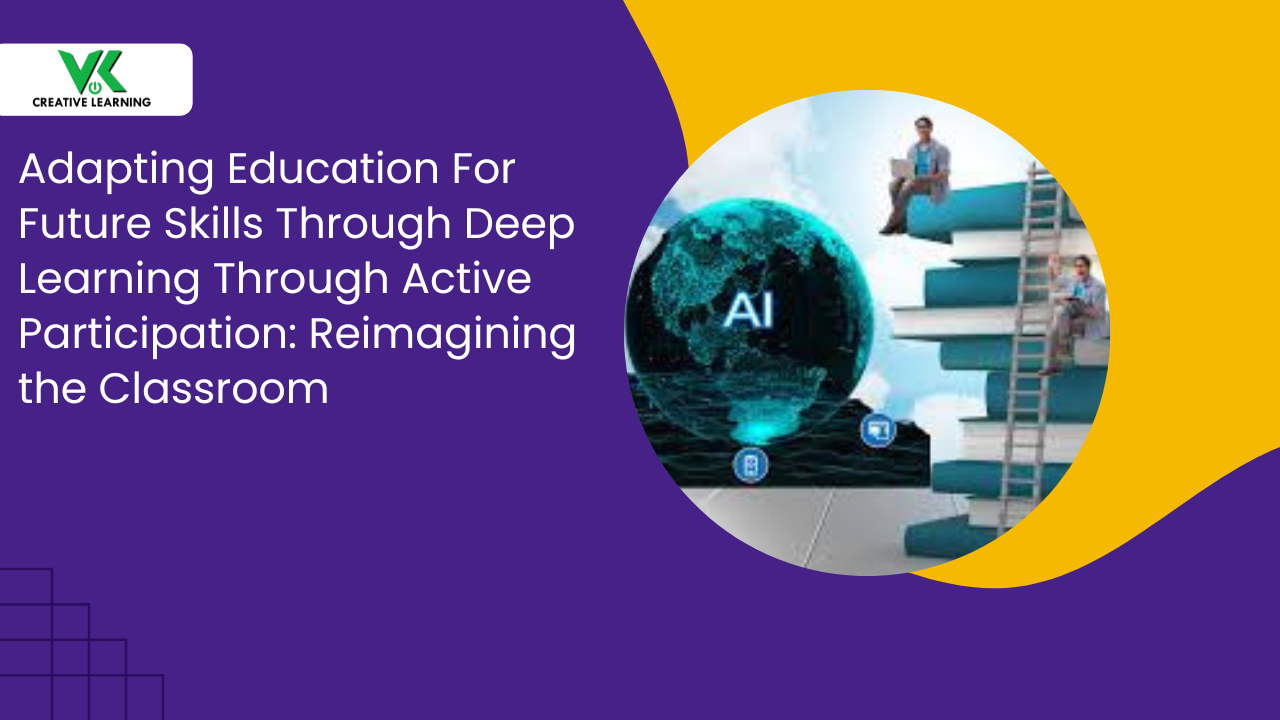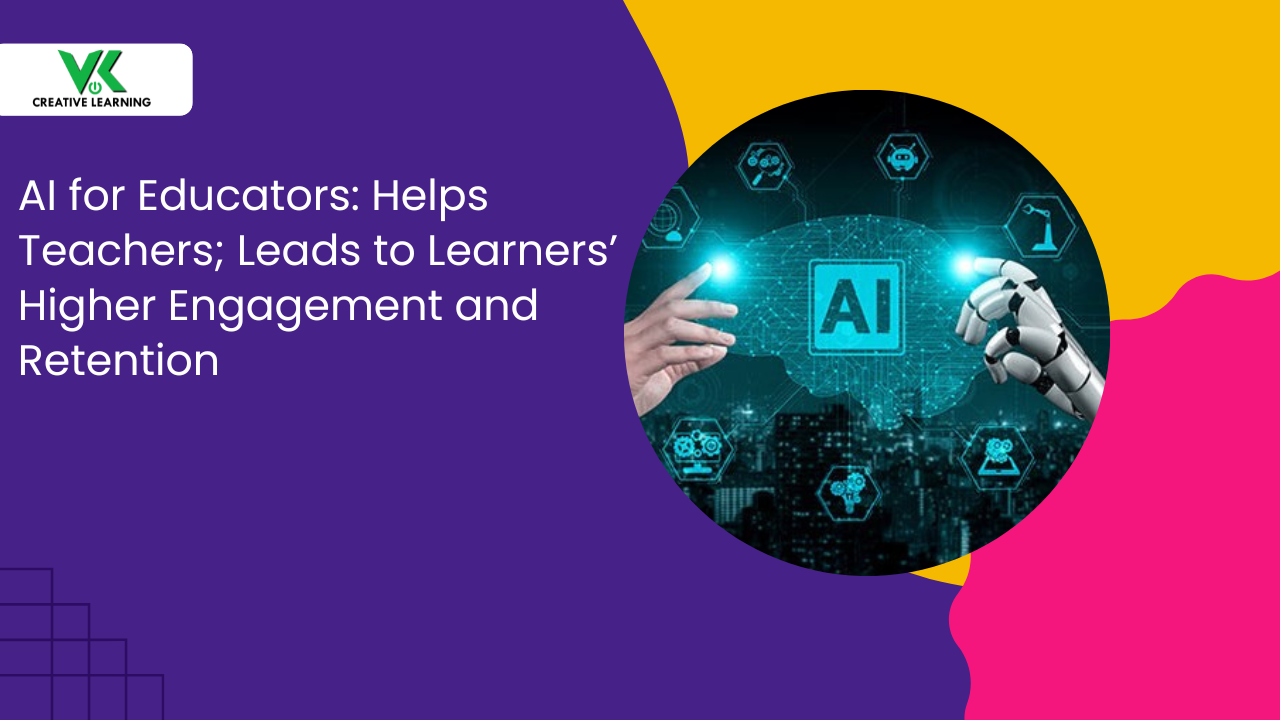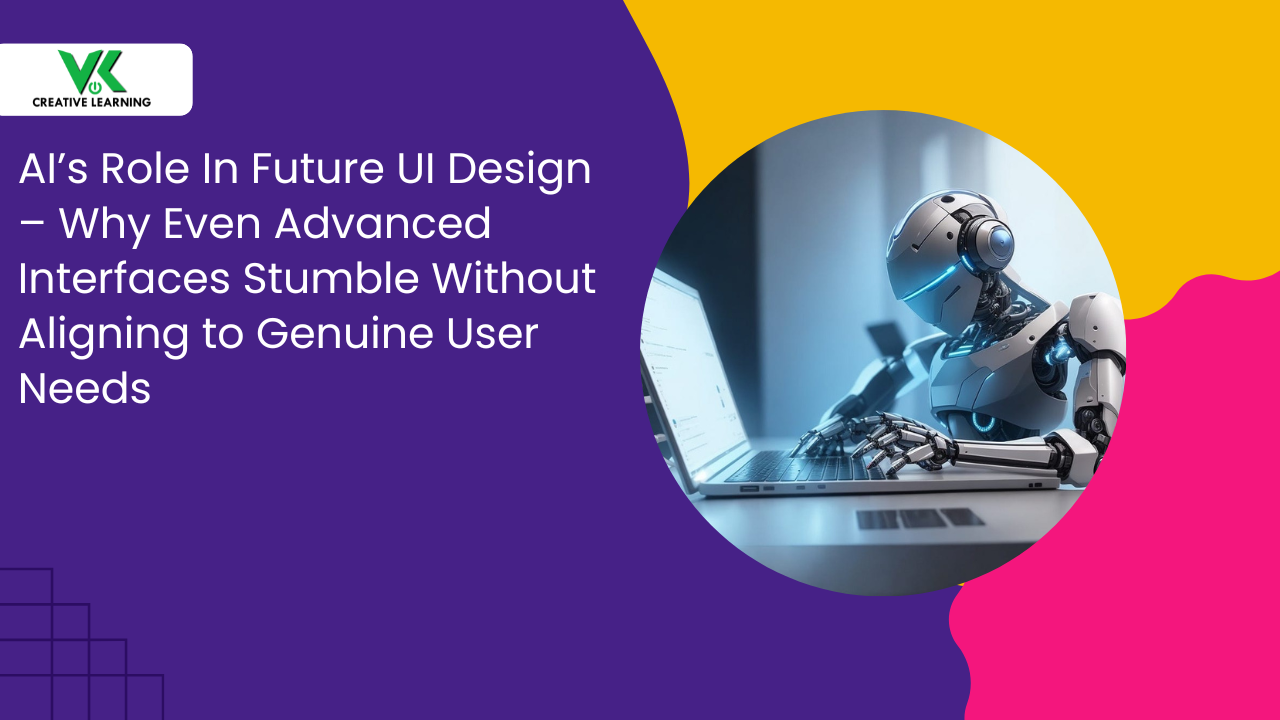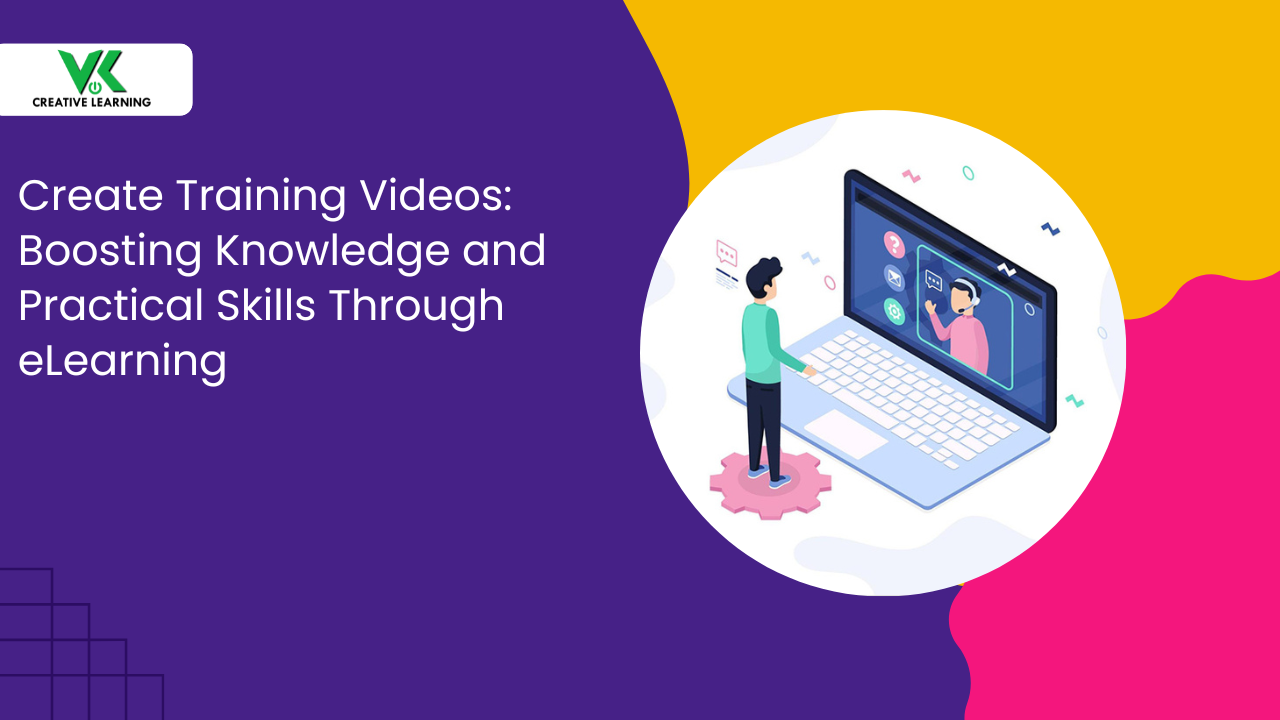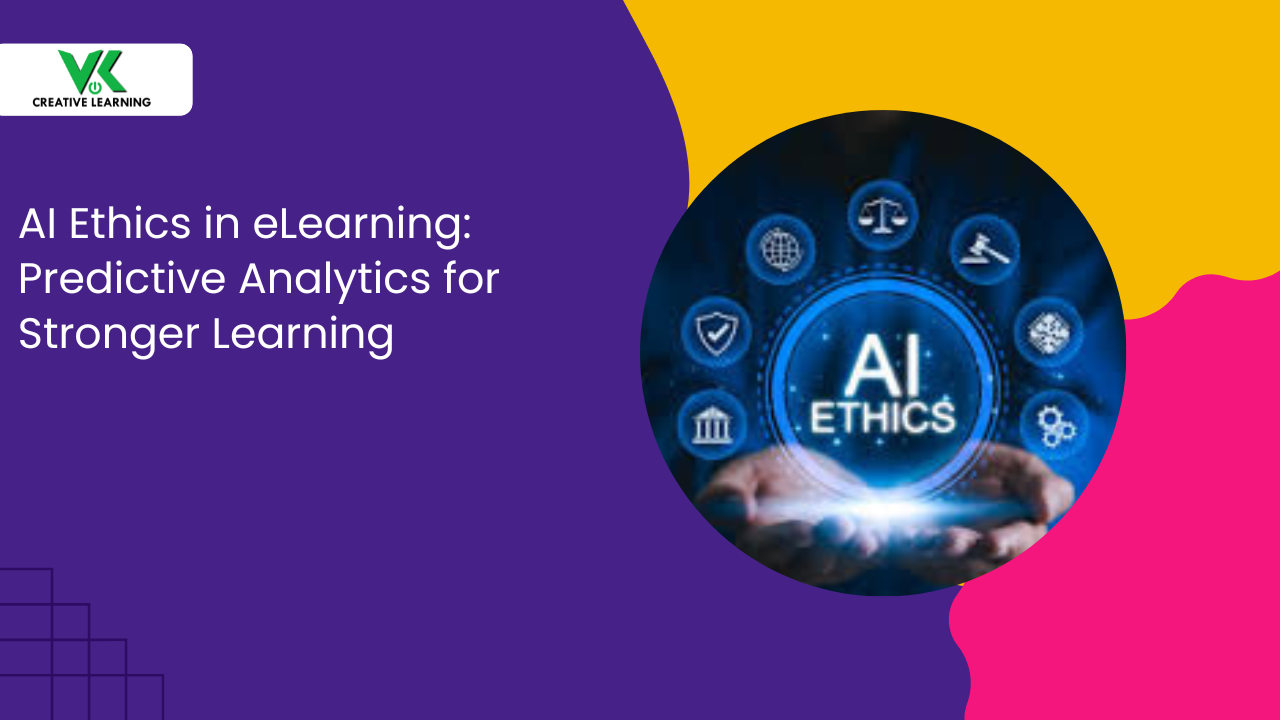Why AI-Powered E-Learning Platforms Will Be a Smart Choice for 2025 and Beyond?
March 18, 2025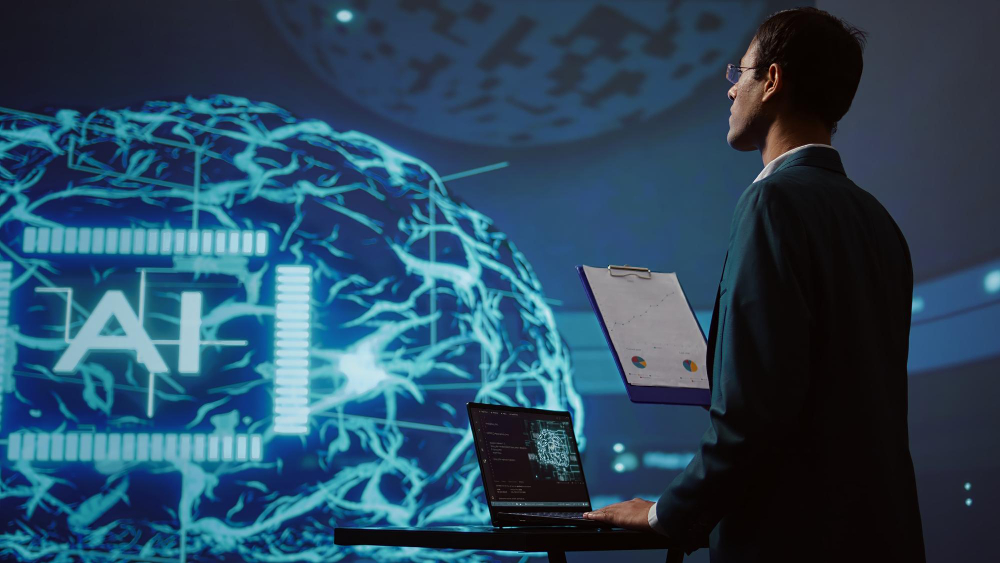
Every industry faces a unique set of challenges, especially when training employees effectively. To understand this situation, in corporate firms, teams have to remain updated with changing market trends. This is true for any financial sector adapting to regulatory changes. The same applies to marketing teams that have to learn AI-driven analytics.
Similarly, HR teams have to keep working on updating and learning compliance policies. In manufacturing industries, employees have to be acquainted with safety training. When this happens, they remain in sync with complex machinery operations.
For example: the automobile assembly line workforce needs to have a thorough understanding about automation techniques.
For aerospace engineers, it becomes necessary to get a good grasp of aircraft simulations.
On the same lines, chemical plant workers need to be familiar with the industry's safety protocols. With newly emerging medical advancements, healthcare professionals require continuous learning to keep pace.
Real-life situations include: surgeons having to gain expertise on robotic-assisted surgery procedures. And, even nurses have to adapt to AI-based diagnostics. Besides, pharmacists need to get a strong hold on new drug formulations.
All these gaps emphasize the requirements of new technology for training -- something based on an AI-based learning approach.
This is where custom eLearning courses within which AI is embedded come in handy. To elaborate, the AI learning platform can enhance teaching and learning.
Custom e-learning solutions are one of the best options when it comes to AI-powered learning platforms. They are created by e-learning content development companies such as VK Creative Learning.
We will understand more about AI in e-learning, its features, and more about its creations in the subsequent sections.
What Is Artificial Intelligence in E-Learning and Its Uses in Various Industries?
AI-powered e-learning platforms can be utilized to address any specific training needs that have to do with rendering thorough learning. In AI custom e-learning courses, unlike traditional methods, multiple features are present.
These features offer learning paths (adaptive) and content updates on a regular basis - in automated forms. Also, included is the tracking of the progress of learners -- think about performance on a monthly basis.
Other examples where AI in learning turns useful: finance professionals receiving AI-driven compliance training. On the other hand, construction workers undergo VR-based safety simulations. Besides, even sales teams getting dynamic customer behavior analytics can be driven by Artificial Intelligence in e-learning.
Importantly, AI training platforms personalize content delivery (adaptive quizzes, interactive modules, real-time feedback). Thus, AI custom e-learning courses make learning more relevant and further engaging for learners.
Table Of Contents:
What Is Artificial Intelligence in E-Learning and Its Uses in Various Industries?
Challenges of Traditional Training and How AI Learning Solutions Prove Better
1. Limited Personalization in Corporate Training
2. Inefficient Safety Training in Manufacturing
3. Slow Skill Development in Healthcare
4. High Costs in Engineering Training
Key Benefits of AI E-Learning Platforms -- Detailed View
1, Enhanced Learning Experience
1. Marketing
2. Cyber Security
3. Educator
2. Real-Time Analytics for Performance Improvement
1. Risk Management:
2. Support Customer Care
3. Cost-Effective and Scalable
3. Interactive and Engaging Training Methods
Challenges of Traditional Training and How AI Learning Solutions Prove Better
Limited Personalization in Corporate Training: There is a high chance that traditional corporate training may follow a one-size-fits-all approach. What this leads is a reduction in the engagement levels of the learners.
Some best examples include: sales teams could have a tough time if excess and irrelevant content is presented. HR personnel may struggle to implement various types of company policies.
Project managers may lack practical understanding as industry-specific case studies may not be part of the learning material.
Solution: e-learning content development companies can address these situations by offering customized e-learning courses. There are algorithms built-in in artificial intelligence in e-learning that can provide plenty of useful features (adaptive quizzes, personalized feedback, progress tracking).
Other outstanding features entail adaptive modules (intelligent recommendations), real-time feedback, and interactive content. This ensures that content is purposeful for learners (thought-provoking, mind-enriching) and that they find it interesting.
2. Inefficient Safety Training in Manufacturing: Safety training when done without hands-on practice turns difficult and often ineffective. Some examples: sometimes, the factory workforce may fail to recall emergency procedures without adequate training.
Other instances include: automotive technicians may not have advanced knowledge to operate the latest machinery.
Similarly, construction laborers will not have any idea how to use safety gear.
Solution: An e-learning content development company creates an AI-driven learning platform ensuring knowledge acquisition becomes easy.
AI training platforms also offer 3D explainer videos (animated walkthroughs, step-by-step guides, visual demonstrations) and virtual simulations. This would help to render thorough knowledge (detailed insights) to the learners.
This would also provide real-time hazard scenarios (machine malfunctions, chemical spills, fire breakouts) wherein employees will get hands-on training.
These features in custom e-learning courses allow employees to practice various scenarios in a risk-free environment.
3. Slow Skill Development in Healthcare: Sometimes, traditional healthcare training may not be able to keep up with evolving medical technologies.
Some examples: Nurses, sometimes, may be unfamiliar with certain complex diagnostics. At certain times, radiologists may find automated imaging results confusing if the machine is not working up to the mark.
Similarly, pharmacists may not be unaware of newly produced drug research.
Solution: For all these cases. AI-powered custom e-learning courses can offer different types of scenario-based training.
In addition, adaptive quizzes and personalized case studies are presented based on learning style and field. These measures ensure faster as well as reliable upskilling.
4. High Costs in Engineering Training: Physical engineering training may turn expensive owing to high equipment costs and logistical challenges.
Best Examples: In aerospace engineering, engineers will require high-cost flight simulators. Even when it comes to civil engineers, the employees will need on-site project training.
Similarly, mechanical engineers may require a vast level of practice on complex machinery.
Solution: AI training platforms integrate LMS, 2D animations, and gamified assessments to provide cost-effective, high-quality training solutions.
Key Benefits of AI E-Learning Platforms -- Detailed View
1, Enhanced Learning Experience: AI-powered learning platforms are smartly programmed to adapt to learning styles and pace of learners. This allows to offer custom e-learning courses to the individuals’ experiences.
Examples of situations where AI e-learning platform can be useful are as follows:
Marketing: There may be circumstances wherein marketing professionals may need new ideas. This is where AI in e-learning can be helpful by providing new insights (customer behavior patterns, ad campaign success, content personalization).
Cyber Security: Another case can be of cybersecurity experts who want to analyze simulated cyber threats. In such cases, AI training platforms, studded with many features, can prove useful. Mainly, they will educate trainees with multiple workplace scenarios using 2D animations.
Educators: Similarly, educators can make use of Artificial Intelligence in e-learning to plan their lessons. They can create different chapters so as to understand where learners find difficulty.
These AI-driven lesson plans can help to enhance teaching content (a digital tutor, smart curriculum, automated quizzes). Also, it can help boost the engagement (sparking curiosity, sustaining focus) factor considerably. E-learning content development companies also plan e-learning courses to ensure retention levels of learners. This becomes possible by providing actual workplace scenarios
2. Real-Time Analytics for Performance Improvement:
AI learning platforms can be useful when it comes to keeping a tab on learners’ progress (custom reports, performance graphs, predictive insights). The AI in e-learning understands the learning patterns or difficulties of learners. Once this process is figured out by the AI, it automatically suggests solutions.
These deep insights (practical takeaways, research-backed findings, learning hacks) can prove out to be a boon for knowledge seekers.
Some examples are:
1. Risk Management: Finance teams can get additional ideas from AI in e-learning on topics such as risk assessments.
2. Support Customer Care: Customer support agents can learn how to communicate better by receiving real-time communication analytics. This ensures targeted skill development (active listening, problem-solving, conflict resolution) in customer service.
3. Cost-Effective and Scalable: AI-powered e-learning eliminates logistical constraints, cutting down training costs significantly.
Some best examples include:
a. Global corporations will utilize remote training e-learning for training employees
b. Startups may use AI in e-learning for onboarding processes, and
c. Universities/Pharma companies can harness the potential of AI-based remote labs.
This flexibility that AI training platforms render in many unique ways makes it one of the best fits for industries globally.
3. Interactive and Engaging Training Methods: Companies can make the best utilization of AI eLearning authoring tools to incorporate features such as gamification, quizzes, and simulations for in-depth learning.
Some examples where Artificial Intelligence in e-learning becomes useful are:
a. HR teams can utilize AI in e-learning for implementing role-play scenarios among departments
b. Logistics professionals can learn how to better manage supply chain challenges through AI-based custom e-learning courses, and
c. Hospitality industry staff can enhance their capabilities in handling guest interactions by interacting with virtual guests first.
All situations mean training turns more as a workable solution for learners and enjoyable too.
Conclusion
Without any doubt, it is safe to assume where the future of various industrial training lies. Yes, training capabilities can be improved many times with AI-powered learning platforms.
From personalized learning paths to cost-effective solutions, AI-based custom e-learning courses will enhance corporate, manufacturing, and healthcare training.
Importantly, organizations that seek to incorporate tailored solutions can approach VK Creative Learning (VKCL).
VKCL is a reputed e-learning content development company in India known for developing the best e-learning solutions. VKCL can integrate AI in e-learning courses that will help to improve workforce skills significantly.
